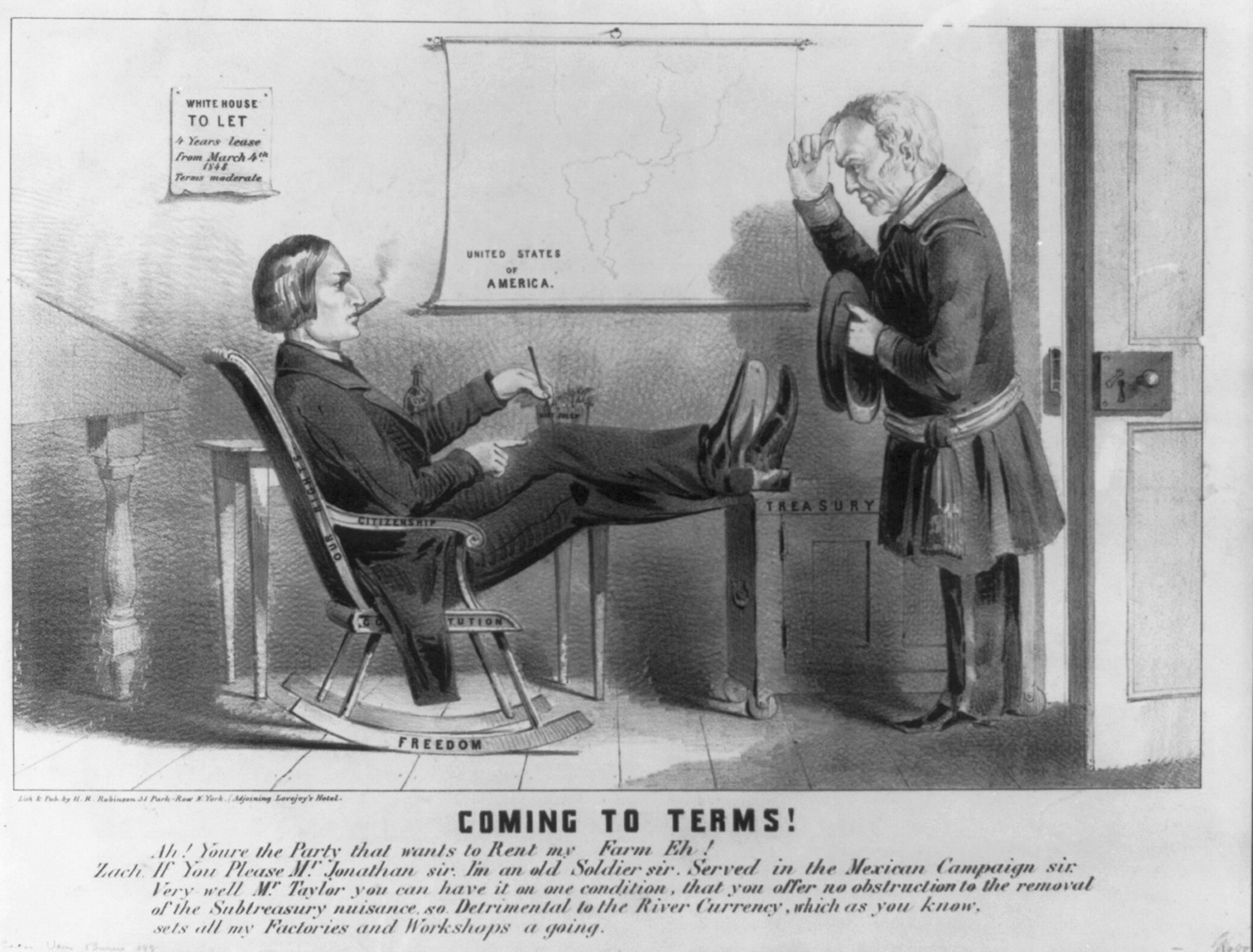Sign up for The Media Today, CJR’s daily newsletter.
How many ways can one show approval?
One can simply say “yes” or one of its many synonyms, nod, show a thumbs up, give a high five, etc.
Someone who says “yes” automatically, especially as an attempt to ingratiate oneself, is often known as a “yes-man.” That phrase originated in the United States in 1912, The Oxford English Dictionary says, meaning “A man who agrees from self-interest or fear with everything put to him by a superior; an obsequious subordinate.”
But that implies only men can be obsequious, and though “yes-girl” and “yes-woman” both appeared in the early 1930s, they never quite caught on.
A genderless and more popular term is “sycophant.” And popular it is in opinion pages, and occasionally news reports.
“The pundits Sean Hannity and Tucker Carlson, in successive sit-downs with Mr. Trump, came off as sympathetic at best and sycophantic at worst,” The New York Times wrote. Speaking of local politicians’ relationships with President Trump, a Knoxville News-Sentinel opinion piece said, “There may be little support for politicians like Marsha Blackburn and Diane Black whose only calling is to serve as his sycophants.” And lest you think that only the president has “sycophants,” here’s a letter to the editor in The Bismarck Tribune complaining about Democrats and Sen. Maxine Waters: “Waters and her sycophants are practically guaranteeing a conservative victory in this fall’s elections.”
For this column, we will go against Strunk and White’s advice: “Do not be tempted by a twenty-dollar word when there is a ten-center handy, ready and able.” “Sycophant,” while a fancier word for “yes-man,” allows equal treatment for women. And though Strunk and White also say that “Anglo-Saxon is a livelier tongue than Latin, so use Anglo-Saxon words,” “sycophants” began as Greek, not Latin.
Also, “sycophants” were originally slanderers, not flatterers.
Why should you give a fig about all of this? Because figs do, um, figure into this. As Merriam-Webster says, “sycophant” comes from the Greek words “sykon,” or “fig,” and “phainein,” or “reveal.”
How did fig revealers become slanderers? One theory has to do with the taxes Greek farmers were required to pay on the figs they brought to market. Apparently, the farmers would sometimes try to avoid making the payments, but squealers—fig revealers—would fink on them, and they would be forced to pay. … In any case, Latin retained the “slanderer” sense when it borrowed a version of sykophantes, but by the time English speakers in the 16th century borrowed it as sycophant, the squealers had become flatterers.
The Oxford English Dictionary, though, says, “The explanation, long current, that it originally meant an informer against the unlawful exportation of figs cannot be substantiated.” But both dictionaries mention the possibility that “showing a fig” meant making an obscene gesture.
The fig story was first recorded in English in 1579, the OED says, though in 1537, it had an obsolete definition of “sycophant”: “An informer, tale-bearer, malicious accuser; a calumniator, traducer, slanderer.” But about the same time as the fig story appeared, the OED lists this definition: “A mean, servile, cringing, or abject flatterer; a parasite, toady, lickspittle.” (Colorful terms, those.)
In 1802, the 12th edition of Samuel Johnson’s dictionary described “sycophant” as “talebearer, a makebate, a malicious parasite.” That dictionary doesn’t define “makebate,” but the OED says it’s a now-archaic term for “A person who or (occasionally) thing which creates contention or discord; a fomenter of strife.” So in his time at least, the slanderer still lived.
Nowadays, “sycophant” is used almost exclusively to mean a person who tries to get ahead through obsequious agreement or flattery.
“Sycophant” used to be much more popular than it is today. This Google N-gram shows how much it dropped from its peak in the early 1800s (the farthest back Google Books reaches). Still, it outpaces all variations of “yes-man,” and seems to be on the rise since 2000.
Just as there are many ways to say “yes,” there are many other ways to say “sycophant,” besides the colorful “toady” and “lickspittle.” “Brownnoser,” “bootlicker,” and “lackey” say the same thing. (As a cautionary tale about using online thesauruses, one synonym for “sycophant” is “politician.”)
Just as Americans seem to have invented the “yes-man,” the British have their own version: the “forelock-tugger.” In ye olden days, peasants would tug or pull the front part of their hair as a sign of respect and obedience to a superior, similar to a military salute.
The Oxford dictionaries define “forelock tugging” as “obsequious or overly deferential behavior.” M-W echoes that definition, but with a meaning closer to “sycophant”: “to be too concerned with pleasing someone whom one thinks is powerful or important.”
“Forelock-tugging” rarely appears in American news reports, but it did in a recent Vanity Fair piece quoting a source worried about the reaction of John Bolton, the national security adviser, to President Trump’s summit with Vladimir Putin in Helsinki: “I mean, he must just be pulling his forelock practically out of his head in order to maintain the ‘Oh you’re so great’ and ‘Mr. President, oh you’re the best,’” the piece said.
That’s a far more visual image than “sycophant” or even “yes-man.” Anyone care to start a trend?
ICYMI: Who suffers when local news disappears
Has America ever needed a media defender more than now? Help us by joining CJR today.



